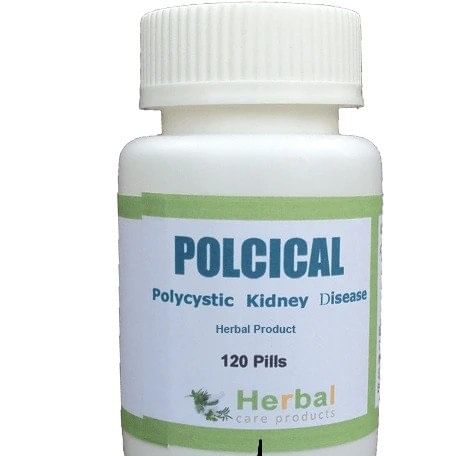Introduction to Polycystic Kidney Disease and Its Symptoms
Polycystic Kidney Disease (PKD) is a genetic disorder that causes numerous cysts to form on the kidneys, which leads to impaired renal function. The disease is one of the most common life-threatening genetic diseases; it affects more than 600,000 people worldwide. It can cause pain, high blood pressure, anemia, infection, bleeding from the kidneys, and eventually kidney failure. While there is no known cure for PKD, there are treatments available to reduce symptoms and slow down progression of the disease. One potential alternative treatment may be herbal remedies – various herbs have been studied as possible treatments for this condition. Herbal remedies may offer some potential benefits for those with PKD if used correctly and safely.
Overview of Herbal Remedies for Polycystic Kidney Disease
Polycystic kidney disease (PKD) is a genetic disorder that affects many people and can lead to a variety of health problems. Herbal Treatment for Polycystic Kidney Disease are limited and mostly focus on managing the symptoms. However, there has been increasing interest in exploring the potential benefits of herbal remedies in treating PKD. Herbal remedies such as nettle, marshmallow root, and dandelion root have been identified as having potential beneficial effects on relieving some of the symptoms associated with PKD.
Nettle is a common plant found throughout much of North America. It has anti-inflammatory properties which can help reduce swelling in the kidneys that often occurs due to PKD. It also contains vitamins and minerals that can help boost overall health and wellbeing. Marshmallow root has traditionally been used to soothe mucous membranes, which may help relieve irritation caused by PKD. Finally, dandelion root has long been used as a natural diuretic, helping to reduce fluid retention in the body which is often seen with PKD.
Although these herbal remedies are generally considered safe to use, it’s important to note that they should be used with caution and under the supervision of a healthcare professional. Additionally, it’s important to be aware that herbal remedies may interact with other medications or treatments one may be taking for their condition. As such, it’s important to consult with your doctor prior to using any herbal remedy while being treated for PKD.
Benefits of Herbal Remedies for Polycystic Kidney Disease
Polycystic Kidney Disease (PKD) is a disorder in which thousands of cysts form on the kidneys, causing them to become enlarged and threatening kidney function. While conventional treatments can be helpful in managing PKD, herbal remedies have been gaining traction as an alternative option for those looking for more natural solutions. Here, we’ll explore some of the potential benefits of using herbal remedies to treat PKD:
First, herbal remedies may reduce inflammation in the body without relying on medications or supplements. Many people with PKD experience pain and discomfort due to inflammation; however, certain herbs like turmeric and ginger can help reduce this inflammation naturally. Additionally, certain herbs have antimicrobial properties, which can help fight off infections that may occur as a result of kidney damage from polycystic disease.
Herbal remedies are also known for their ability to promote kidney health by cleansing and detoxifying the organ. While there is no cure for PKD, drinking herbal teas such as nettle or dandelion tea can help flush out toxins from the kidneys that can damage its function. Additionally, herbs such as parsley and coriander have been shown to help improve renal function by boosting blood circulation in the kidneys.
Finally, many people find that using herbal remedies helps them manage their symptoms more effectively than conventional treatments alone. The anti-inflammatory properties found in certain herbs can provide relief from bladder spasms and other uncomfortable sensations associated with PKD while strengthening overall renal function when coupled with a healthy lifestyle. Additionally, herbs like chamomile or lavender are known for their calming effects which may provide relief from stress and anxiety related to living with a chronic condition.

Common Types of Herbal Remedies for PKD
When it comes to treating Polycystic Kidney Disease (PKD), many people are turning to herbal remedies as an alternative, or complementary therapy. Natural Remedies for Polycystic Kidney Disease are plant-based medicines made from various combinations of herbs, roots, and other natural ingredients. The use of herbal remedies can be traced back thousands of years in various cultures around the world. Today, herbal remedies have become more popular due to their potential health benefits and fewer side effects than traditional medications. Here we explore some of the most common types of herbal remedies for PKD:
· Chinese Herbs: Chinese herbs are some of the most widely used forms of herbal medicine in the world. They have been used for centuries to treat a variety of ailments, including PKD. Chinese herbs typically include combinations of different plants and minerals that work together to provide relief from symptoms.
· Ayurvedic Herbs: Ayurvedic herbs are a traditional form of Indian medicine that has been practiced for thousands of years. These herbs are believed to help reduce inflammation and improve overall health by balancing the body's energy systems. Commonly used Ayurvedic herbs include Curcuma longa (turmeric) and Withania somnifera (ashwagandha).
· Homeopathic Remedies: Homeopathic remedies are based on the principle that “like cures like”; meaning that if a substance is causing a certain symptom(s), then taking a small amount of it can help alleviate those same symptoms. Popular homeopathic remedies for PKD include Berberis vulgaris and Lycopodium clavatum.
When it comes to treating PKD, many people turn to herbal remedies as an alternative approach to managing their symptoms. Herbal remedies may provide relief from the pain and swelling of cysts as well as help reduce the development of new cysts. While herbal remedies may be a viable option for some, it is important to recognize that there can be potential side effects and considerations when taking this form of treatment.
The most common side effect associated with taking herbal remedies is gastrointestinal upset, such as nausea, vomiting, or diarrhea. To prevent this from happening it is important to take the herbs with food or with digestive aids like ginger or chamomile tea. In addition, some herbs can interact with certain medications so it is important to talk to your doctor about any potential interactions that may occur when combining herbal remedies and other forms of medication.
Herbal remedies can also cause allergic reactions in certain individuals. Symptoms can include skin rash, hives, difficulty breathing, and swelling of the face, lips, tongue or throat. If you experience any type of allergic reaction while taking an herb remedy, seek medical attention immediately.
Finally, herbal remedies are not regulated by the FDA and therefore may not have labels warning about potential side effects or contraindications. For this reason it is essential to do research on any herbs you intend to take in order to make sure they are safe for you to use. Additionally consult a healthcare professional before starting any form of herbal treatment.
Conclusion
Herbal remedies have proven to be an effective way to treat the symptoms of Polycystic Kidney Disease, as they provide natural relief and healing without the need for harsh medications. Herbal remedies can also be used to prevent further health complications from PKD, as they help to strengthen the overall functioning of the body's organs and systems. Moreover, herbal remedies are easy to find and prepare, and can easily be incorporated into a daily routine. With the right combination of herbs and treatments, those with Polycystic Kidney Disease may find relief from their symptoms and a healthier overall lifestyle.
